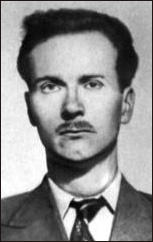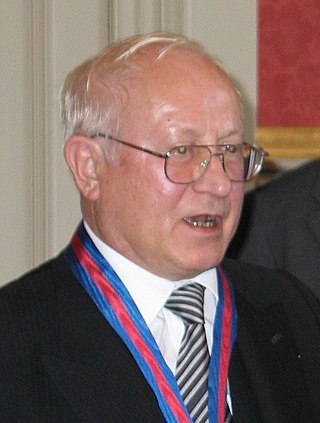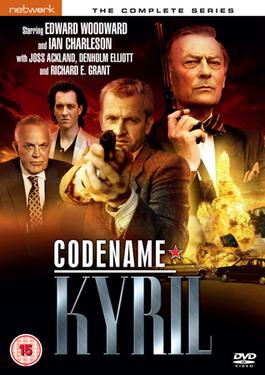
Harold Adrian Russell "Kim" Philby was a British intelligence officer and a double agent for the Soviet Union. In 1963 he was revealed to be a member of the Cambridge Five, a spy ring that had divulged British secrets to the Soviets during the Second World War and in the early stages of the Cold War. Of the five, Philby is believed to have been the most successful in providing secret information to the Soviets.

Spy fiction is a genre of literature involving espionage as an important context or plot device. It emerged in the early twentieth century, inspired by rivalries and intrigues between the major powers, and the establishment of modern intelligence agencies. It was given new impetus by the development of fascism and communism in the lead-up to World War II, continued to develop during the Cold War, and received a fresh impetus from the emergence of rogue states, international criminal organizations, global terrorist networks, maritime piracy and technological sabotage and espionage as potent threats to Western societies. As a genre, spy fiction is thematically related to the novel of adventure, the thriller and the politico-military thriller.

The Cambridge Five was a ring of spies in the United Kingdom that passed information to the Soviet Union during the Second World War and the Cold War and was active from the 1930s until at least the early 1950s. None of the known members were ever prosecuted for spying. The number and membership of the ring emerged slowly, from the 1950s onwards.

John Cairncross was a British civil servant who became an intelligence officer and spy during the Second World War. As a Soviet double agent, he passed to the Soviet Union the raw Tunny decryptions that influenced the Battle of Kursk. He was alleged to be the fifth member of the Cambridge Five. He was also notable as a translator, literary scholar and writer of non-fiction.

Oleg Antonovich Gordievsky is a former colonel of the KGB who became KGB resident-designate (rezident) and bureau chief in London.

Vasili Nikitich Mitrokhin was an archivist for the Soviet Union's foreign intelligence service, the First Chief Directorate of the KGB, who defected to the United Kingdom in 1992. Mitrokhin first offered his material to the US' Central Intelligence Agency (CIA) in Latvia but they rejected it as possible fakes. After that, he resorted to the UK's MI6 which arranged his defection from Russia. These notes became known as the Mitrokhin Archives.

George Blake was a spy with Britain's Secret Intelligence Service (MI6) and worked as a double agent for the Soviet Union. He became a communist and decided to work for the MGB while a prisoner during the Korean War. Discovered in 1961 and sentenced to 42 years in prison, he escaped from Wormwood Scrubs prison in west London in 1966 and fled to the Soviet Union where he resided until dissolution in 1991. He continued to reside in the Russian Federation until his death in 2020. He was not one of the Cambridge Five spies, although he associated with Donald Maclean and Kim Philby after reaching the Soviet Union.

Hopscotch is a 1980 American comedy spy film produced by Edie Landau and Ely A. Landau, directed by Ronald Neame, and stars Walter Matthau, Glenda Jackson, Sam Waterston, Ned Beatty and Herbert Lom. The screenplay is written by Bryan Forbes and Brian Garfield, based on Garfield's 1975 novel.

Oleg Vladimirovich Penkovsky, codenamed Hero and Yoga was a Soviet military intelligence (GRU) colonel during the late 1950s and early 1960s. Penkovsky informed the United States and the United Kingdom about Soviet military secrets, including the appearance and footprint of Soviet intermediate-range ballistic missile installations and the weakness of the Soviet intercontinental ballistic missile (ICBM) program. This information was decisive in allowing the US to recognize that the Soviets were placing missiles in Cuba before most of them were operational. It also gave US President John F. Kennedy, during the Cuban Missile Crisis that followed, valuable information about Soviet weakness that allowed him to face down Soviet leader Nikita Khrushchev and resolve the crisis without a nuclear war.

The Russia House is a spy novel by British writer John le Carré published in 1989. The title refers to the nickname given to the portion of the British Secret Intelligence Service that was devoted to spying on the Soviet Union. A film based on the novel was released in 1990 starring Sean Connery and Michelle Pfeiffer, and directed by Fred Schepisi. The BBC produced a radio play starring Tom Baker.
Charles Cumming is a British writer of spy fiction and a screenwriter.

The Russia House is a 1990 American spy film directed by Fred Schepisi and starring Sean Connery, Michelle Pfeiffer, Roy Scheider, James Fox, John Mahoney, Klaus Maria Brandauer and director Ken Russell. Tom Stoppard wrote the screenplay based on John le Carré's 1989 novel of the same name. It was the first US motion picture to be shot substantially on location in the Soviet Union.

Free Agent is a 2009 spy thriller novel written by Jeremy Duns. It is the first in a trilogy of spy thrillers featuring MI6 agent Paul Dark and is set at the height of the Cold War in 1969. The novel is set in London and Nigeria during the Nigerian Civil War. Duns has said he was influenced by the novels A Dandy in Aspic, by Derek Marlowe and The Human Factor by Graham Greene.

Codename: Kyril is a 4-part British miniseries, first broadcast in 1988 over two consecutive nights. It is a Cold War espionage drama, starring Ian Charleson, Edward Woodward, Denholm Elliott, Joss Ackland, and Richard E. Grant. The spy thriller was directed by Ian Sharp, and the screenplay was written by John Hopkins, from a 1981 novel by John Trenhaile. The fairly complex plot concerns a known Russian spy ("Kyril") sent to the UK under falsely reported pretenses in order to hopefully indirectly spark an unknown mole in the KGB to reveal himself; the endeavor eventually has repercussions which none of the initial players could have predicted.

Spy in Chancery is a spy novel by Kenneth Benton set in Rome during the Cold War in the 1970s. The book begins with a foreword by novelist Michael Gilbert, and is the third novel to feature Overseas Police Adviser Peter Craig. Craig travels to Rome for a conference, and is caught up in investigating a spy at the British Embassy.
The Game is a British Cold War spy thriller television serial set in London in 1972. The six-part series was created by Toby Whithouse, written by Whithouse, Sarah Dollard and Debbie O'Malley, and first broadcast on BBC America in 2014.

Atomic Blonde is a 2017 American action thriller film directed by David Leitch from a screenplay by Kurt Johnstad, based on the 2012 graphic novel The Coldest City by Antony Johnston and Sam Hart. The film stars Charlize Theron, James McAvoy, John Goodman, Til Schweiger, Eddie Marsan, Sofia Boutella, and Toby Jones. The story revolves around a spy who has to find a list of double agents that is being smuggled into the West on the eve of the collapse of the Berlin Wall in 1989.
Sexpionage is the involvement of sexual activity, intimacy, romance, or seduction to conduct espionage. Sex, or the possibility of sex, can function as a distraction, incentive, cover story, or unintended part of any intelligence operation.

Agent Running in the Field is a 2019 novel by British writer John le Carré, published on 17 October 2019. It was le Carré's final novel to be published before his death in 2020.

The Billion Dollar Spy: A True Story of Cold War Espionage and Betrayal is a non-fiction history book by David E. Hoffman.

















